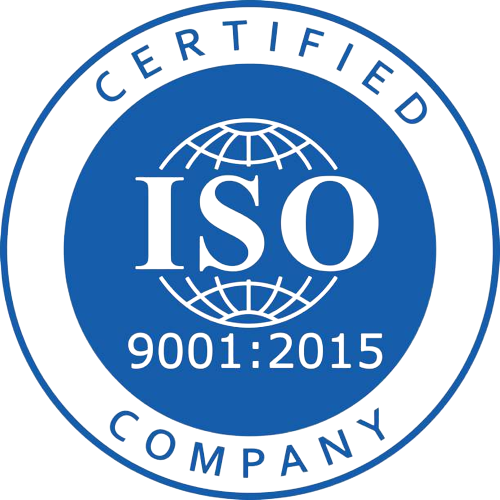Ensuring a Drupal website stands out in the competitive digital landscape is essential. Search Engine Optimization (SEO) is a pivotal factor that can significantly enhance a Drupal site’s visibility in search engine results, attracting more organic traffic and potential visitors. SEO principles are universally applicable, whether one represents a business, a blog, or an organization.
Drupal, a versatile and robust content management system, offers a powerful platform for creating and enhancing websites to cater to search engines. Let’s delve into many SEO strategies and techniques customized specifically for Drupal. We will cover everything from choosing the appropriate theme and optimizing site speed to creating high-quality content, conducting in-depth keyword research, and leveraging SEO modules. The aim is to equip independent with the knowledge to increase search engine rankings and elevate a Drupal site’s performance. If you are ready to take your Drupal place to the next level, let us embark on this SEO journey together and unlock the full potential of an online presence.
User-Friendly Drupal Theme Selection
The initial step in optimizing a Drupal site for SEO is selecting a user-friendly theme. When choosing a theme, consider its aesthetics, functionality, and responsiveness. Mobile responsiveness is paramount, as search engines prioritize mobile-friendly websites. A responsive design ensures that a site functions seamlessly on all devices, enhancing the user experience and positively impacting search engine rankings.
Additionally, a well-designed theme should offer a clean and intuitive layout, creating it easy for visitors to navigate a site. Ensuring that a selected piece adheres to best practices for web design, such as proper heading tags and structured data, can further boost a site’s SEO performance.
It’s important to note that customization is possible when selecting a Drupal theme, allowing for alignment with specific SEO requirements. Opt for an article that permits adjustments to metadata, URLs, and other SEO elements to enhance a site’s appearance in search results.
Optimize Drupal Site's Speed
Website speed plays a pivotal role in SEO. Slow-loading websites often result in higher jump rates, adversely affecting search engine rankings. Users expect web pages to load swiftly, and search engines reward sites that offer a seamless browsing experience.
To improve a Drupal site’s speed, consider the following strategies:
Implement Caching: Utilize caching mechanisms, such as Drupal’s built-in caching or third-party caching modules, to store pre-rendered versions of web pages, reducing the need to regenerate content with each request and resulting in faster load times.
Optimize Images: Large image files can significantly slow down a site. Compress images and employ responsive image techniques to ensure efficient loading based on the user’s device.
Content Delivery Network (CDN): Use a CDN to distribute a site’s assets (images, scripts, stylesheets) across multiple servers globally, reducing the physical distance between the user and the server, leading to quicker page loading.
Minimize HTTP Requests: Decrease the number of HTTP requests by consolidating CSS and JavaScript files and employing asynchronous loading when feasible.
High-Quality Content
Content serves as the cornerstone of SEO. High-quality, informative, and engaging content attracts and retains users and garners favour with search engines. When crafting content for a Drupal site, focus on the following aspects:
Relevance: Ensure content aligns with the interests and needs of the target audience. Thorough research is crucial to understanding the niche’s trending topics and addressing them in range.
Uniqueness: Originality holds significance in SEO. Avoid duplicating content from other sources, as search engines prioritize unique and valuable information.
Readability: Employ proper formatting, including headings, subheadings, and bullet points, to break up content and enhance digestibility, thereby improving the user experience.
Regular Updates: Keep content current. Outdated information can harm SEO performance. Periodically review and refresh articles, blog posts, and other content.
Keyword Research and Integration
Effective keyword research is the foundation of a fortunate SEO strategy. Keywords are the conditions and phrases users enter into search engines to find information. To optimize a Drupal site for search engines, identifying the right keywords and seamlessly integrating them into content is essential.
To approach keyword research and integration:
Use Keyword Research Tools: Employ tools such as Google Keyword Planner, SEMrush, or Ahrefs to identify relevant keywords within the niche, focusing on keywords with high search volumes and low competition.
Utilize Long-Tail Keywords: Longer, more specific phrases known as long-tail keywords often have less competition and can be valuable additions to the SEO strategy.
Place Keywords Strategically: Incorporate chosen keywords into critical locations on the site, including page titles, headings, body text, and meta tags. Avoid keyword stuffing, which can harm rankings.
SEO-Friendly URLs
Drupal provides the flexibility to create SEO-friendly URLs by configuring content paths. Customizing the URL structure is essential for improving user experience and search engine visibility. Adhere to these guidelines when creating SEO-friendly URLs:
Use Descriptive URLs: Craft URLs that offer a clear and concise information of the content on the page, enabling users to understand the topic at a glance.
Include Relevant Keywords: Whenever possible, include relevant keywords in URLs to aid SEO and provide users with additional context about the content.
Use Hyphens: Separate words in URLs with hyphens, as it enhances URL readability compared to underscores or spaces.
Optimization of Meta Tags
Meta tags, involving title tags and meta descriptions, constitute vital components of on-page SEO. They serve as the first impression of the site in search engine results, making it important to optimize them for both search engines and end users. Implement the following strategies:
Title Tags: The title tag is the header of the search engine result. It should be unique, concise, and include the primary keyword for the page, accurately representing the content to encourage clicks.
Meta Descriptions: The meta description summarises the page’s content, designed to engage and inform users, enticing them to click through. While meta descriptions may not directly affect rankings, they influence click-through rates, impacting SEO performance.
Maintain Uniqueness: Each page on the Drupal site should feature a unique title tag and meta description to prevent duplicate content issues and ensure search engines can differentiate between pages.
Ensure Optimal Length: Keep title tags into 60 characters and meta information under 160 characters to ensure correct display in search engine results.
Improve Internal Linking
Internal linking is vital to on-page SEO, facilitating search engine comprehension of the website’s structure and hierarchy. It also distributes link equity to important pages. Here are effective strategies for internal linking in Drupal:
Establish a Logical Hierarchy: Organize content into a logical hierarchy using parent and child pages to support search engines and users navigate the site more efficiently.
Utilize Descriptive Anchor Text: When creating internal links, use descriptive anchor text that gives users and search engines insights into the linked page’s content. Avoid generic terms like “click here” or “learn more.”
Link to Relevant Content: Link from one page to another when the content is relevant and adds value. For instance, if there is a blog post about “SEO Tips,” link to a related article on “Keyword Research.”
Implement Sitemaps: Generate XML sitemaps to assist search engines in discovering all web pages. Drupal offers modules that can automate sitemap creation, which can be accepted to search engines through Google Search Console.
Utilize Breadcrumbs: Implement breadcrumb navigation on the site, enhancing user experience and aiding search engines in comprehending the site’s structure
Mobile Optimization
Given the increasing use of mobile devices, mobile optimization is a critical factor in SEO. Drupal offers responsive themes that automatically adapt to various screen sizes, ensuring a seamless user experience on mobile devices. However, additional steps can further enhance mobile optimization:
Ensure Mobile-Friendly Design: Verify the website is visually appealing and functional on mobile devices. Test the site on mobiles and tablets to guarantee a smooth user experience.
Prioritize Mobile-First Indexing: Google primarily uses the smartphones variety of the site for indexing and ranking. It is essential to categorised mobile optimization to maintain or improve search rankings.
Optimize Loading Times: As mobile users often have slower connections, optimizing for speed is crucial. Compress images and eliminate unnecessary elements that may slow down the site.
Employ Responsive Images: Use responsive image techniques to deliver appropriately sized pictures based on the user’s device, significantly improving mobile loading times.
Explore Mobile SEO Modules: Drupal offers modules specifically designed for mobile optimization, such as “Mobile-friendly tables” and “Mobile Detect,” which can fine-tune the site for mobile users.
SEO Modules
Drupal provides an array of SEO modules that can streamline and enhance optimization efforts. Consider implementing popular modules like:
Pathauto: This module automates URL creation based on content types, helping create SEO-friendly URLs for pages.
Metatag: The Metatag module offers advanced control over meta tags for Drupal content, allowing customization of title tags, meta information, and social media tags for each page.
Google Analytics: Integrating Google Analytics with a Drupal site enables tracking user behaviour, monitoring traffic, and gaining insights into the site’s performance.
XML Sitemap: This module generates XML sitemaps for a site, making it easier for search engines to discover and index content.
Redirect: The Redirect module allows managing and creating URL redirects, which is useful for handling page migrations and preventing broken links.
SEO Checklist: The SEO Checklist module provides a comprehensive checklist of tasks to help optimize a Drupal site for SEO, guiding through various optimization steps and ensuring critical elements are not missed.
Monitor and Analyze Performance
SEO is ongoing; monitoring and analysis are pivotal to its success. Regularly track a Drupal site’s performance using tools like Google Analytics or other analytics platforms. Effectively monitor and analyze SEO performance with these strategies:
Track Keyword Rankings: Keep an eye on keyword rankings to assess the site’s performance in search results. Utilize tools like Moz, SEMrush, and Ahrefs for tracking keywords.
Analyze Traffic Sources: Examine the sources of web traffic, whether from search engines, social media, or other sites. Understanding traffic sources allows focusing marketing efforts effectively.
Study User Behavior: Study user behaviour on the site, identify pages with high bounce rates and low engagement and work on improving them.
Implement Conversion Tracking: To establish conversion tracking to measure particular user actions or goals, such as form submissions, product purchases, or newsletter sign-ups.
Conduct Technical SEO Audits: Regularly perform technical SEO audits to identify and solve issues that may hinder the site’s performance, including broken links and crawl errors.
Engage in Competitor Analysis: Study competitors in the same niche, gaining insights into their SEO strategies, content, and backlink profiles and identifying opportunities for improvement.
Conclusion
We have underscored the significance of user-friendly Drupal themes, website speed, high-quality content, keyword integration, SEO-friendly URLs, and mobile optimization in the context of improving search engine rankings and providing a seamless user experience. By implementing these strategies and harnessing VE3’s expertise, businesses can elevate their online presence, effectively engage with their target audience, and sustain a competitive edge in the ever-evolving digital landscape.
VE3’s dedication to Drupal services, encompassing web development, module development, theme design, migrations, and support, underscores its commitment to delivering comprehensive digital solutions.VE3 Services offers a wide range of digital solutions tailored to meet the dynamic technological needs of businesses. Our expertise extends across various domains, including cloud, blockchain, AI, and more, establishing it as a versatile partner in the journey towards digital transformation. To know more explore our innovative digital solutions or contact us directly.


















